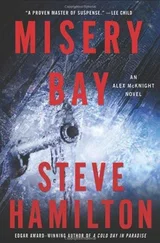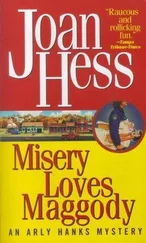Сэмуэль Шэм - Mount Misery
Здесь есть возможность читать онлайн «Сэмуэль Шэм - Mount Misery» весь текст электронной книги совершенно бесплатно (целиком полную версию без сокращений). В некоторых случаях можно слушать аудио, скачать через торрент в формате fb2 и присутствует краткое содержание. Жанр: Проза, на английском языке. Описание произведения, (предисловие) а так же отзывы посетителей доступны на портале библиотеки ЛибКат.
- Название:Mount Misery
- Автор:
- Жанр:
- Год:неизвестен
- ISBN:нет данных
- Рейтинг книги:4 / 5. Голосов: 1
-
Избранное:Добавить в избранное
- Отзывы:
-
Ваша оценка:
- 80
- 1
- 2
- 3
- 4
- 5
Mount Misery: краткое содержание, описание и аннотация
Предлагаем к чтению аннотацию, описание, краткое содержание или предисловие (зависит от того, что написал сам автор книги «Mount Misery»). Если вы не нашли необходимую информацию о книге — напишите в комментариях, мы постараемся отыскать её.
Mount Misery — читать онлайн бесплатно полную книгу (весь текст) целиком
Ниже представлен текст книги, разбитый по страницам. Система сохранения места последней прочитанной страницы, позволяет с удобством читать онлайн бесплатно книгу «Mount Misery», без необходимости каждый раз заново искать на чём Вы остановились. Поставьте закладку, и сможете в любой момент перейти на страницу, на которой закончили чтение.
Интервал:
Закладка:
Berry too was trying something new, teaching four-year-olds in a preschool. Her internship in child psychology had crushed her, a few red-hot supervisors making her feel that she was "too sensitive" and didn't have the "critical discipline" to be an academic. She had rebelled against a central part of her training: doing psychological testing on kids, labeling them as "sick." For her refusal, she was constantly made to feel like a failure.
Yet she loved being with children. Wherever we stopped in our travels, I would volunteer as a doc, she as a teacher. She'd decided that when we got back she would work with "normal" children, in a preschool. I bent and kissed her.
"Where've you been?" she asked, her half smile replaced with worry as she awakened. I told her. "You never said you had a seminar tonight."
"I forgot."
"Haven't you ever heard of telephones?" I said I had in fact heard of them, yes. "I've been worried. How was your day?"
"My day and night and day? Loved every minute of it. Being a shrink's a snap. It fits me perfectly: a Jewish doctor who can't stand the sight of blood."
"Sure, if you go through it drunk."
"I'm not drunk."
"Fine," she said, getting up, "and I'm not staying."
"C'mon, give an inch, willya?"
'Try me tomorrow."
"Wait, wait, how was your day?"
"One thing I've learned," she said, "is not to try to talk to a drunk."
"Hey, come on, I'm not your father, I'm your-"
'Tomorrow," she said, and left for her own apartment.
"Hey, I'm sorry," I called after her. Too late. She was gone.
In bed I read a letter from my own father, the dentist, one of the world's great optimists, a master of the conjunction. All his sentences were in the pattern of phrase-conjunction-phrase:
… Glad you are done with your year off and it was a loss of a year's income and not normal. Psychiatry is a waste of your talent and you will soon find out and go back to real medicine. Dentistry was always an intellectual challenge and a secure income. I still hope that someday we can have our family foursome and Mom has such a smooth short swing. I am playing well and try to concentrate on keeping loose my arms like ropes…
Two
HUNGOVER AND RAW, the next morning at nine I trudged into the Farben Building and up the grand stairway to my secretary Nancy's office. The Cherokee-Schlomo matter seemed far away and phantasmal, like a faded dream. Nancy wore a cheery pink top, which exposed her tanned shoulders. Her eyes were red with tears.
"What's wrong?"
"Didn't you hear?" Her eyes widened.
"WW9 W~~-…U_^» r,
all did.'"
"After you left."
Things went blank. I heard her sobbing, but in the distance, as if she were one floor down. My legs were watery. I found myself in a chair.
How could this be? It was impossible. I was talking to him, shaking his hand. He was smiling. He was going on vacation, for Chrissakes. I mean he seemed a little burnt out, but basically he'd been cheerful. "Are you sure it was suicide?" 'Totally." She sobbed even harder. I felt a cold grinding in my chest, a metal fist around my heart. My whole body was heavy. Then I saw all over again as if it were yesterday the stain on the parking lot of the House of God where one of my buddies, a fellow intern named Potts, had landed from his leap from eight floors up, and tears broke, hot and sharp, searing my eyes. Ike? Not Ike.
Word spread, and by the time Solini and I pushed our way into the standing-room-only Misery daily report at nine-thirty
that morning, everyone not only knew that Ike White had killed himself with an overdose of sedatives, but also knew the kind and rough number of pills, and that on that last afternoon he had called the hospital benefits office to check on his insurance coverage-the return call I myself had heard on the answering machine. He'd popped the pills at about eleven, not a half hour after he and I had grasped hands limply without eye contact and I'd told him to enjoy his vacation. He'd died in the emergency room of a local hospital, with his wife and his new psychoanalyst at his bedside, and with his psycho-pharmacologist in constant touch by beeper.
As we stood packed together at the back of the old auditorium, most of us knew the terrible truth. We were looking for help in how to handle it.
Dr. Lloyal von Nott stood up on the small stage, his funereal suit and dark hair and brows a picture of sad decorum. Here was a man not only in control, but in charge. He was the Chief of Misery, and like other chiefs of other institutions, he had that dazzling sincerity that meant you couldn't trust a word he said. The meeting was a daily half-hour report from various wards of Misery on the events of the past twenty-four hours, including new admissions and current problems. With the calm dignity of his high British accent, Lloyal handled the usual business of running the hospital, proceeding as if nothing had happened, right up until the grandfather clock in the corner struck the hour with ten mournful bongs. The last bong died, leaving an ominous hush. Lloyal cleared his throat. The tension was incredible.
"Thank you very much," Lloyal said, and started to leave.
Unreal. For a second no one said anything. Then the meeting started breaking up. Suddenly someone called out, loudly, "Excuse me. Dr. von Nott?"
Lloyal paused. The meeting coalesced. Heads turned to locate the speaker. A tall, gray-haired woman wearing dark glasses was standing, chin raised in that Stevie Wonder posture-clearly she was blind. "Dr. Geneva Hooevens here. We are all very upset about Dr. White's death. Perhaps you could give us some information?"
"We are sorry to announce the death of Dr. Isaac White. He died of a fatal disease. The new director of residency training
will be Dr. Schlomo Dove. The time of the memorial service will be announced, anon."
Fatal disease? It was suicide. What the hell was going on?
"But," Dr. Geneva Hooevens said, "we are hearing a rumor of suicide."
"There is no truth to that rumor. Dr. White died of a fatal disease." Lloyal turned and left. The meeting ended.
Solini and I walked along slowly in the still, untroubled sunlight toward our wards on Emerson. With us was Hannah Silver, the only woman in our first-year resident class. I'd known Hannah at the BMS. She was a delicately featured woman with black hair spinning down to her shoulders, intense eyes set in a thin, Sephardic face, and a body that seemed to get more and more hefty as it descended, as if built low to the ground, for speed. A New Yorker with a sensitive soul, during an intense Upper East Side analysis she'd given up a promising career as a cellist, for medicine. She and I had worked together with Ike on Emerson 1.
"What do they mean 'fatal disease'?" Solini asked. "Are they talking existential? Or is it some medical disease the poor guy had?"
"He was in perfect health," I said. "He was only forty-one. Nancy spoke to a nurse friend of hers who saw the lab report: massive overdose of barbiturates. It was suicide, no question."
"Why won't they admit the truth? Why the cover-up?"
"I don't know," I said, feeling ghostlike, the grip of that small, stammering hand. It was stunning to think that while he was shaking my hand he had already put everything in place to kill himself an hour later. What had he said, so fluently? They go out seamless. I looked at Hannah. She too had chosen Misery because of Ike, had decided to specialize in Ike's specialty, depression and suicide. Now she was trudging along like a robot, in shock.
In my month with Ike, dealing with the most depressed people on the face of the earth, I'd come to believe in him, in what he said and what he did. He was always calm, never saying much or doing much, but giving Hannah and me the feeling that he knew what he was up to, that walking the walk with these poor depressed souls would bring them out the other side. Ike had been the wise, calm, all-knowing doctor.
Читать дальшеИнтервал:
Закладка:
Похожие книги на «Mount Misery»
Представляем Вашему вниманию похожие книги на «Mount Misery» списком для выбора. Мы отобрали схожую по названию и смыслу литературу в надежде предоставить читателям больше вариантов отыскать новые, интересные, ещё непрочитанные произведения.
Обсуждение, отзывы о книге «Mount Misery» и просто собственные мнения читателей. Оставьте ваши комментарии, напишите, что Вы думаете о произведении, его смысле или главных героях. Укажите что конкретно понравилось, а что нет, и почему Вы так считаете.










